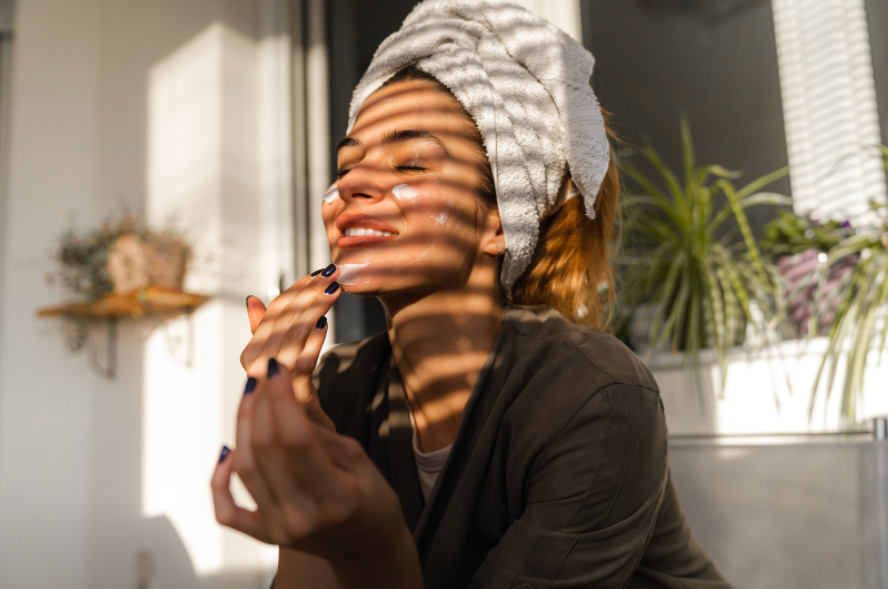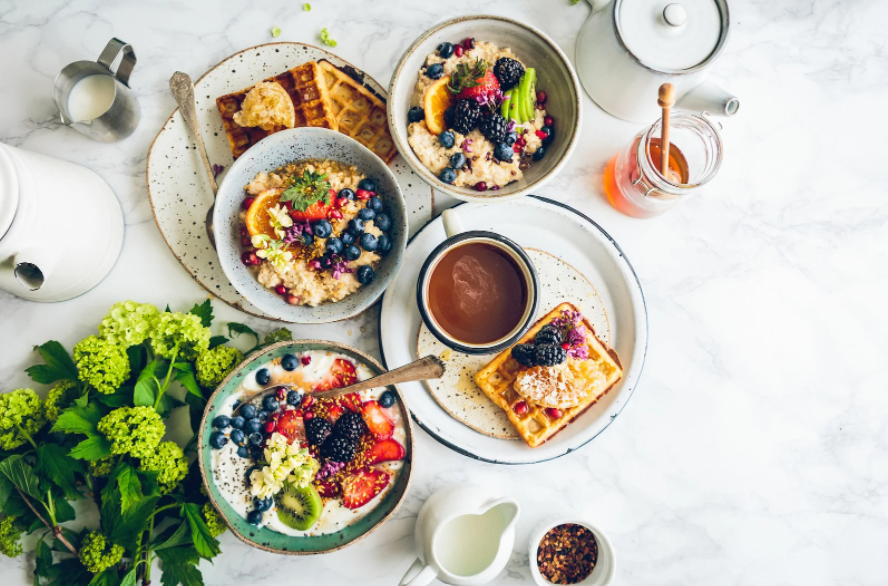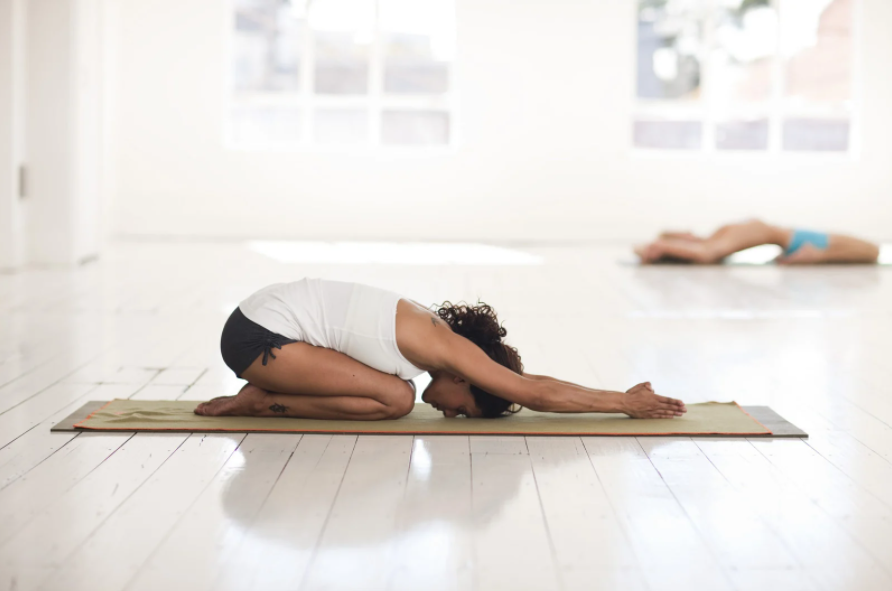
Over recent years, the term ‘self-care’ has made its way firmly into our daily vocabulary, with nearly 60 million posts on Instagram under the #selfcare hashtag, with the contents ranging from gardening videos and baking tutorials to motivational quotes and workout routines. Everyone’s version of self-care looks a little different, based on their individual needs and abilities, but where does the phrase itself come from?
Surprisingly, the concept of self-care originated in the Second World War, where physicians were introducing programs and treatments which were designed to encourage independence in patients, so that they could take part in their own recovery or care. The concept then developed further due to research in trauma patients – or individuals in particularly dangerous lines of work – who were encouraged to participate in activities that centred around wellness, and addressing their physical, mental, and spiritual needs in a bid to prevent further trauma. From the beginning self-care has been an empowering and preventative measure taken to ensure longevity and proactivity in recovery and wellness.
It has continued to develop into the 21st Century, where it has become largely intertwined with and influenced by consumerism, as brands and companies market their products from the angle of providing a level of comfort or care that counteracts the more difficult aspects of modern living. Candles, workout gear, skincare, and homeware now all fall under the marketing category of ‘self-care products’, with the definition now having shifted somewhat to a more consumer-based concept, with the message being ‘this product we’re selling will contribute to your wellness’.
For this article, I’d like to return to the original purpose of self-care, which is to empower individuals to be proactive in maintaining and improving their health and wellbeing in a manner that ensures longevity and stability rather than simply comfort or enjoyment. Based on these parameters, here are some elements of self-care that aren’t simply the purchasing of products, but the changing of behaviours.

The First Steps
Self-care in the modern age is often associated with stress-relief and relaxation, resulting in people having a ‘self-care day’ in which they order in food, put on a facemask, do some meditation, or watch a film. All of these things are indeed relaxing activities, and each one has a place in a balanced, fulfilling life. However, a problem with the modern attitude towards self-care is a neglect of the preventative aspect that it originated with, and a focus on treating the effects of stress instead of working towards minimising stress and addressing the root causes.
So, for our first step, we must identify the sources of distress in our lives. Whether it’s a difficult colleague or job, a lack of organisation, a relationship in our lives that isn’t fulfilling or nurturing, or a constant feeling of anxiety, finding out what the issue is and where it comes from is the most important part of self-care, as it allows us to stop wasting time with methods that don’t work or that address the wrong issues, and instead can focus our energy and resources on getting to the root of the issue so that we can truly and entirely resolve it. This is also a great practice of mindfulness and being in tune with our own body and emotions, as it forces us to be aware of how we are feeling and what is causing it. Pay attention to the signs of stress in your own mind and body, and note down the details of when, where, and why you begin to feel that way. After a while, you might begin to notice a pattern; you start to feel panicky around a certain person, or thinking about paying the bills makes your heart race. Knowing these patterns is the key to reducing stress and practicing real self-care.
Once we have identified the source of our stress, the second step is to identify why they are a source of stress for us. Sometimes all that is needed is a difficult conversation or a change of perspective for our stress around a certain topic to be alleviated, but first we have to understand it. Perhaps we are stressed around a certain person because we associate them with another negative feeling, such as guilt or obligation. Maybe we don’t feel confident in a certain area such as managing finances, and so the topic brings up feelings of anxiety and panic. Taking the time to really thing about our feelings and why we are feeling them is a great habit to get into, and one that can benefit you in all areas of your life. In the journal you’ve been tracking your stress patterns in, start going into more depth when you write about your feelings. Be specific and detailed when you talk about your worries and emotions, because the more accurate we are in this practice the more accurate the next step can be.
Finally, once we’ve finished our period of self-reflection, we can look forward towards a solution. Now that we know the problem and our own reactions in a more detailed way, we can work towards addressing the problem itself!
Organisation
Organisation is in many ways a preventative measure to minimise stress. If you are disorganised, many things are left to the last minute, which increases your stress levels and sends you into a panic. If your living or working space is cluttered and untidy, things are harder to find and keep track of, meaning your efficiency is decreased and more time is wasted on looking for things. It is also much easier to be caught off guard by charges or deadlines when we are disorganised and not keeping track of our finances and appointments.
Being organised is not easy for everyone, and different people’s brains function in different ways. Finding a way of organisation that works for you, rather than trying to fit into a specific mould that might not be effective for you is the key to remaining on top of things, whether that means downloading apps to help you keep track of meetings and appointments, keeping to-do lists and journals on your desk to manage tasks, or organising your physical space to maximise efficiency. Taking care of taxes and savings, cancelling subscriptions, returning items that would otherwise stay in the back of the cupboard collecting dust with the tags still attached; all of these things can alleviate stress when done in a timely manner, rather than being left to the last minute, or not being done at all.
While organisation might not seem as fun as some other modern self-care techniques such as face-masks and movie nights, it is sometimes the more difficult and tedious tasks that we are tempted to ignore that end up being the biggest cause of our daily stress, and therefore the biggest cause for our need for self-care. Keeping our life in order is a valuable, tried-and-tested way to ensure we are operating at our best, most efficient level, which in turn maximises our health and wellbeing!
Health & Fitness

In Western culture, there is an inexplicable link between our emotional state and our food and alcohol consumption. Often, food and alcohol are used as a comfort; we overindulge when our emotions are high as our consumption is linked directly to our feelings. While occasionally treating yourself when you’ve had a particularly hard day and don’t have the time or energy to cook is perfectly valid, treating food and alcohol as a stress-relief or emotional crutch can have an extremely damaging effect on your long-term health. If you turn to food or alcohol in times of stress, then in any prolonged periods of stress, you will be utilising these unhealthy coping mechanisms at an exaggerated rate due to the co-dependent relationship you have developed with consumption.
Ensuring that we disconnect food from our emotions means we aren’t setting up a dysfunctional relationship with food that will create problems in the future and instead treat food as enjoyable fuel for our bodies to ensure it runs properly and effectively. If you have a habit of using food as an emotional crutch, try finding an alternative and healthier option, or at least practicing moderation when you do celebrate or commiserate using food. Additionally, ensuring we are reaching our nutrition goals on a regular basis means we are less effected by the days in which we do indulge or eat something less healthy. Try and include some healthy greens and vibrant fruits into your diet, and ensure you are getting enough vitamin D, iron, calcium, and magnesium regularly to maintain an optimum level of health. Most importantly, please consult with a doctor or physician before making any extreme changes to your diet, especially if you are pregnant or have any underlying health conditions. They might be able to provide further insight into how our diet affects us, whether we are consuming too much sugar which spikes our blood sugar levels, or not drinking enough water and getting enough vitamins which are vital for brain function and cognitive power. Speaking to a professional is always crucial when you are trying to determine what works best for you, and drastic changes must always be done under medical supervision.
Movement is also extremely important for our wellness and health; not only does it keep us healthy and fit, but exercise is proven to alleviate stress and produce endorphins, which are vital for our wellbeing. Our exercise does not have to be intense or strenuous, but anything that raises our heartrate and has us breaking a sweat is beneficial to our health! Joining a gym and attending exercise classes can add a social element to our exercise routine, but workout videos online can be just as beneficial at a reduced cost. Yoga and swimming are excellent for those who cannot do high resistance workouts such as running, and there are always routines online suited to every ability, body-type, and age. Walking the dog can be enough of a workout for some, whereas others might find martial arts classes enjoyable for blowing off some steam. Even dancing around the kitchen to your favourite music for an hour or so can raise your heartrate and is an enjoyable way of getting some exercise in! As always, be careful and consult a doctor with regards to any extreme changes in routine, and always stretch before any exercise.
Mental health is also a key component to self-care. Sometimes self-care can involve speaking to a professional about unmanageable stress levels or unhealthy coping mechanisms. Stress is a normal part of life, but when our stress levels reach a point where they are affecting us on a daily basis or impacting our lives in other areas, then it is time to speak to someone about it, as this can have a serious detriment to your physical and mental health. Therapists and mentors can offer a deeper insight into the reasons behind our stress and the ways in which we can care for ourselves on a sustainable and fulfilling level, and so reaching out to an expert on the topic is one of the best ways of achieving the highest level of wellbeing and health no matter what.
Socialising & Connection
In times of distress, there is a temptation to isolate yourself, pulling away from your social connections so as to not worry them or bother them with your problems. Ironically, these moments in our life are often when we need other people the most, despite everything inside us telling us to run and hide. In those moments, it is nearly always beneficial to push ourselves to reach out to those around us and share our worries; not only can they provide emotional support, but they might have an insight or experience to offer that we might not have heard otherwise. We have a lot to learn from the people around us and reaching out to ask for their help and advice is always a beneficial thing.

However, there are always things we can do before we reach this stage. Firstly, making sure we are surrounded by people who love and support and want what is best for us is crucial. Building strong foundations in our relationships and nurturing our connections with others during the happier moments in our life means that we have a strong support system when things get harder. Curating a group of likeminded, caring, honest peers is an extremely valuable aspect of taking care of ourselves.
Secondly, making people aware of the difficulties in our lives means that they have the chance to provide help and comfort when we need it the most. Sometimes, the people around us can be desperate to help alleviate our stress, but they aren’t made aware of our struggles or we don’t open up to them when we are struggling, meaning they can’t provide us the support we need when we need it. Opening up and letting people know what we need when we need it can be the greatest gift to ourselves and to those around us who want to see us thrive and succeed.
A final point: while all of these tips can be extremely helpful to minimise stress and prevent burnout in the long run, it is equally important to note that every person is unique and has a different set of strengths and needs. Achieving a perfectly organised daily routine is not always possible for people with young children, inconsistent work hours, or chronic health problems, and so the final aspect of self-care is of course compassion and patience towards yourself. Nobody can be perfect at all times, and stress comes and goes as a natural part of our lives. Self-care in the modern sense of the word also has a place; there are few things more comforting than cuddling up on the sofa with a movie and a take-away, and this article is by no means condemning these things. However, these things are so much more effective when they are backed up and supported by consistent habits which contribute to our overall wellbeing and health, and self-care should always aim to be preventative as well as comforting.
Written by Abigail Whitney of Likambi Global Publishing Ltd
